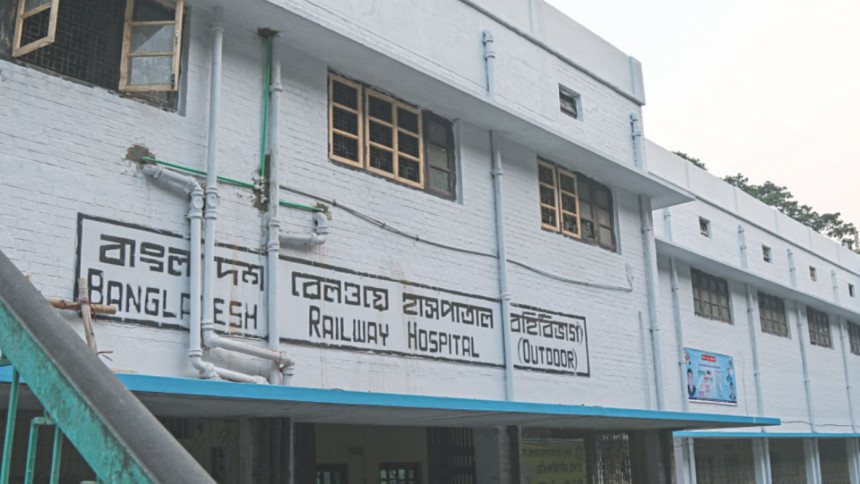SOS from a hospital

Md Osman (not his real name), a railway official, was admitted to Bangladesh Railway Hospital in Chattogram last week for acute stomach aches.
He was immediately given treatment and was advised to stay at the hospital for a few days until he felt better.
Soon enough, he was surprised to see that the drinking water given in his cabin was yellowish and had bad odour. Not wanting to take chances with his already upset stomach, he bought mineral water from outside. He had to use the bottled water to wash up, as the tap water in the hospital room also smelled bad.
The poor quality of water is not the only problem in this lone divisional hospital in the east zone. It also suffers from a shortage of doctors and medical staff as well as a lack of equipment.

Out of the 131 posts in the hospital, 28 were empty, including that of assistant divisional medical officer, upper division clerk, office assistant, pharmacist, ward attendant and operation theatre assistant. Moreover, there was no post for specialist doctors in the 110-bed hospital.
Md Sohel, stenographer to the hospital's division medical officer (DMO), said they used to attend to an average of 70 patients, including 10 in surgery, per day in 2015. That number has dropped to 45 at present, he added.
While railway officials and their families were supposed to get free treatment at the hospital, the number of patients was decreasing by the day due to poor medical services, he said.
“Who would want to buy water to even wash their hands at a hospital? Besides, prior to any type of surgery, the patients' attendants have to buy gallons of water for the nurses to wash the medical tools. The tap water cannot be used as it is alkaline, which affects the equipment,” said Sohel.
About the scarcity of doctors and staff members, hospital officials said the posts of pharmacist and senior nurse have been vacant since 2016.
IS Abdul Ahad, the hospital's DMO, said all railway hospitals had a scarcity of doctors.
“Sixteen new doctors were recruited in railway hospitals throughout the country in 2016; only six of them remain now.” The others quit as there is no specialist doctor position, which gives other doctors little scope to learn and grow, he added.
The quality of medical care was also compromised due to a lack of equipment. “The X-ray machine broke down in 2016. We only received a budget to purchase a new one in the recent government budget.”
Furthermore, the hospital had an obsolete electrocardiogram (ECG) machine with only six channels, whereas other diagnostic centres have 32-channel machines, said Sohel. It makes diagnosing diseases difficult, he added.
The hospital received Tk 50 lakh last month as its annual budget for 2018-19, which was previously Tk 90 lakh, hospital officials said.
“While we are unable to find a solution to our own crises, this hospital provides medicine to all other railway medical centres of the division, including the CGD Hospital, Pharatali Railway Hospital, and conservancies at Chattogram, Laksam, Cumilla and Chandpur,” the DMO said.
All the pharmaceutical requisitions of the nearby Railway Cardiac Hospital and Pahartali Railway Hospital were also done from here, he added.
Meanwhile, the Pahartali Railway Hospital provides only outdoor services and only has one doctor in the posts of DMO and assistant surgeon.
Dr Chinmoy Biswas, DMO (Pahartali), said he is unable to “concentrate on being a doctor” as he is burdened by a lot of official work.
Syed Faruk Ahmed, general manager (east) of Chittagong railway, said the water supply in the whole Central Railway Building (CRB) area is dirty.
“We have been trying to arrange water supply from WASA. But for their own departmental formalities, we haven't gotten it yet,” he said.
WASA sources, however, said that the delay in providing water supply to the CRB area was only due to official formalities, adding that the supply would begin in WASA's second phase of work plan which was due to start next year.
About the budget being curtailed this year, Faruk said it was a decision taken by higher authorities.


 For all latest news, follow The Daily Star's Google News channel.
For all latest news, follow The Daily Star's Google News channel. 








Comments